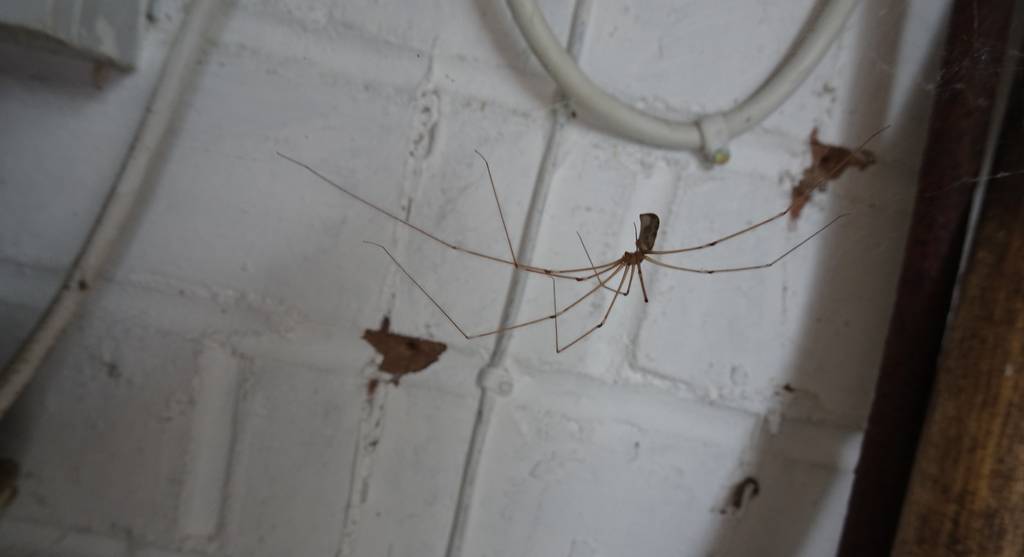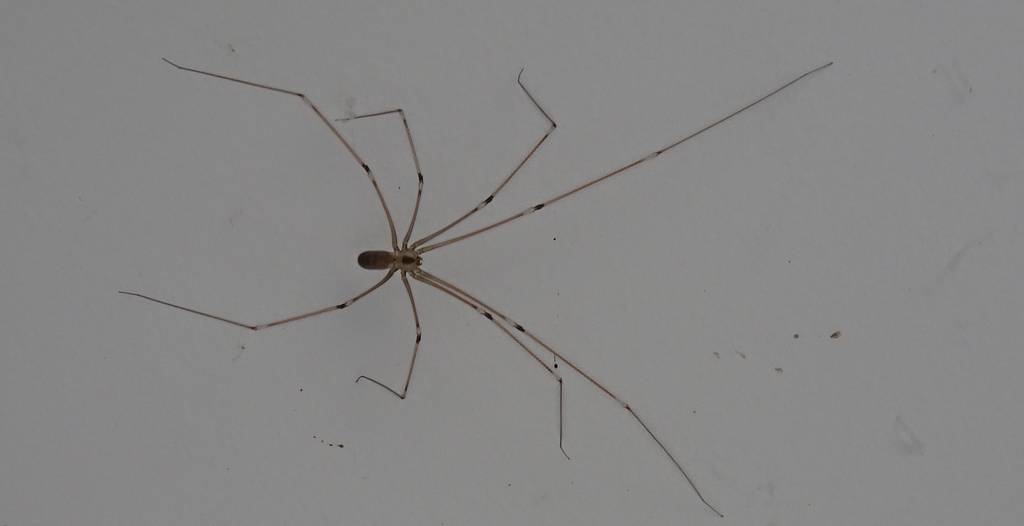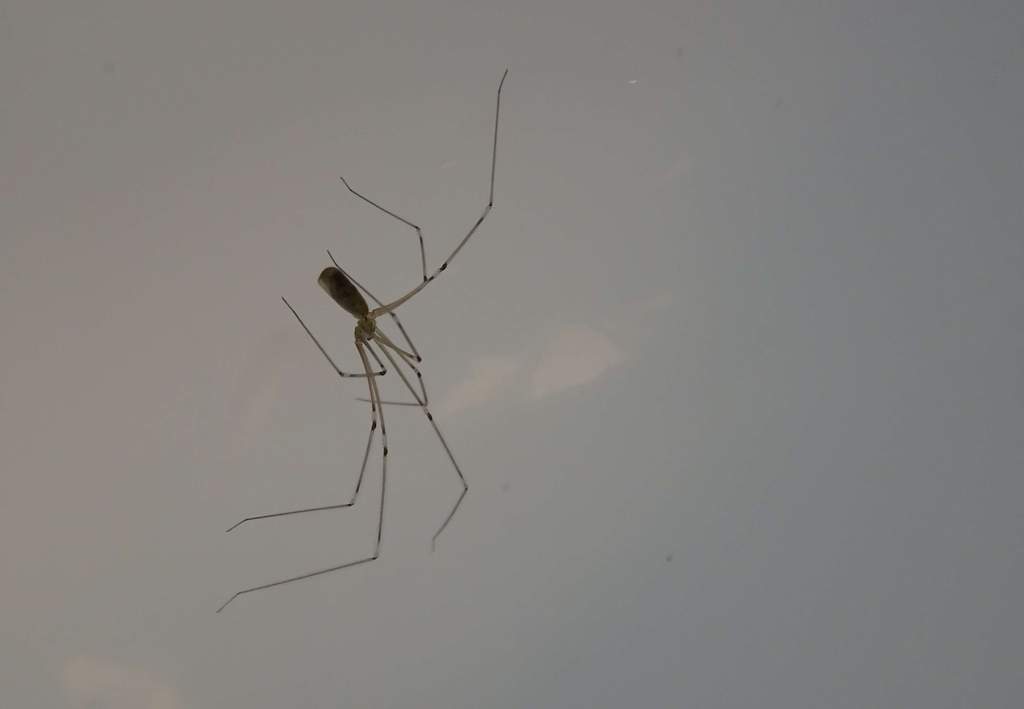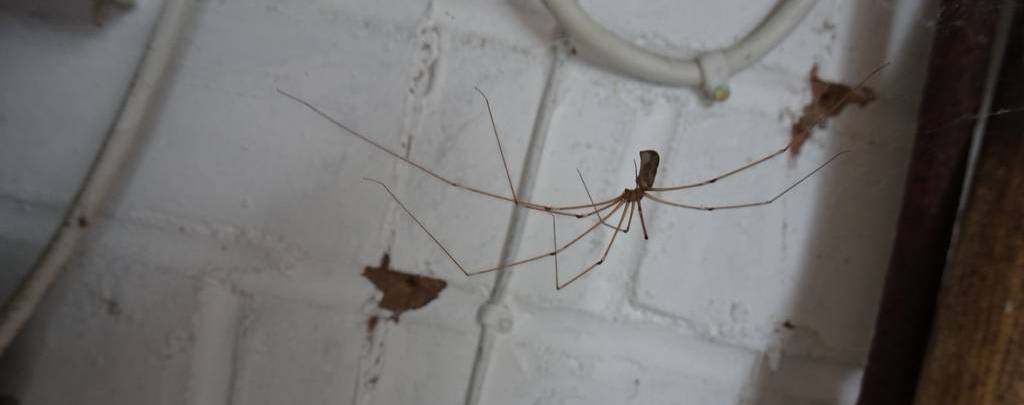The cellar spider, AKA the daddy longlegs spider, is a common but not always welcome sight in our homes. Their untidy webs can cause annoyance, but don’t write them off just yet, they are definitely worth the extra dusting.

Friend or Foe
The cellar spider’s long legs can make them appear large and there are tales of them being highly venomous, but these tales are not true. In reality, their venom is no stronger than that of most other UK spiders and their jaws are too small and weak to break human skin.
So for us humans, they are not to be feared, in fact, they can be very beneficial.
In House Pest Control
Cellar spiders are fearsome hunters and will catch and eat other invertebrates lurking in your house. They often take prey much larger than themselves including large spiders, beetles, and even wasps. Their long legs enable them to keep these dangerous adversaries at ‘arms’ length enabling them to punch well above their weight.
It’s not just the big stuff either, they will also hoover up some of the most unwelcome visitors to your home such as fleas, woodworm beetles, and mosquitos. This can very useful in summer when pests can be at their heights. In fact, having a few cellar spiders around might mean that you don’t need to call a service similar to the Pest Authority of Birmingham or your local pest controller as often due to them arguably helping to control numbers.

In other areas of the world, these useful spiders are actually a welcome sight in people’s homes where they kill larger spiders some of which are deadly to humans.
Web developers
Cellar spiders are not known for their craftsmanship when it comes to web building. Their webs consist of an untidy mass of unordered silk but these modest structures are still very effective for trapping their passing prey. But, unlike many other spiders, cellar spiders will also regularly leave their webs to seek out potential victims wherever they can be found. When times are hard they will even eat each other.
Tables turned
Although cellar spiders are accomplished hunters they are not without their own predators and have some clever ways to stay out of trouble. When attacked cellar spiders will often trigger a curious defensive mechanism that involves them standing tight on their webs and gyrating their bodies rapidly. These gyrations are so so fast that the spider’s body becomes a blur confusing the vision of would-be predators.

Don’t Show them the Door
Despite their impressive hunting abilities, cellar spiders are actually very delicate creatures. They originate from sub-tropical areas of Asia and are not able to survive outdoors in the temperate conditions of central and northern Europe. So before you show them the door, spare a thought for their survival and send them to the garage instead.


